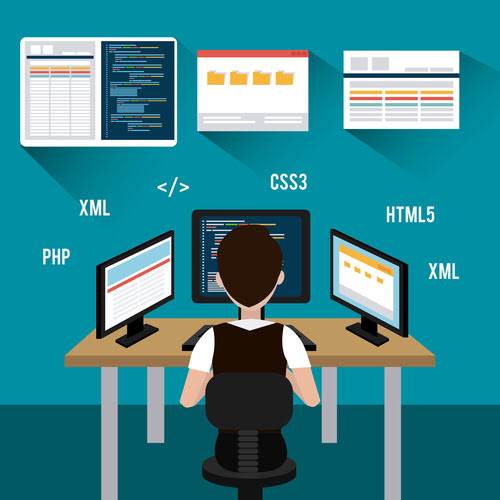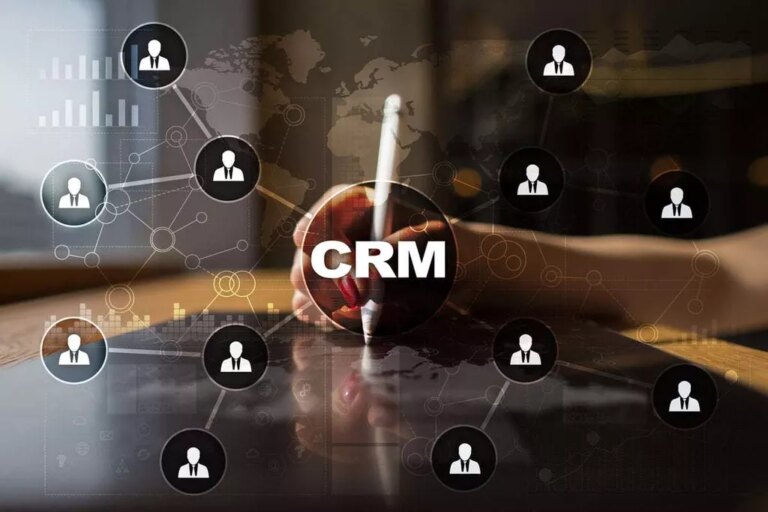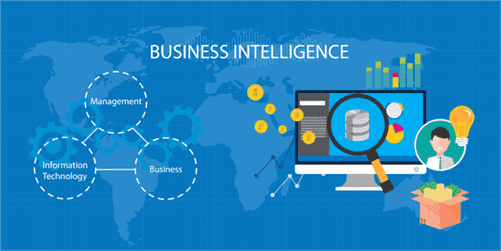10 feb What is Enterprise Resource Planning ERP?
The cost of an ERP project varies widely depending on vendor, modules and deployment model. Generally speaking, total costs can range from less than $10,000 per year to millions of dollars annually. ERP systems are priced with the needs of the target audience in mind, so those built for emerging and high-growth businesses will be more affordable than those used by Fortune 500 enterprises. On-premises and hybrid ERP that combines cloud and on-premises solutions are most common with enterprises, simply because they may have adopted ERP before pure cloud systems were available. Some enterprises have also deployed two-tier ERP, which uses a SaaS solution for parts of the business and integrates with the primary on-premises ERP. With a hosted cloud solution, a company purchases a license but runs it on remote servers managed by a third party.

It also eliminates the problems that come with conflicting sources of data and empowers them to analyze various scenarios, discover process improvements and generate major efficiency gains. That translates to cost savings and better productivity as people spend less time digging for needed data. Critical success factors are limited number of areas in which results, if satisfactory, will ensure the organization’s successful competitive performance.
Two-tier enterprise resource planning
Watch and learn how Oracle ERP Cloud delivers connected teams, unified data, and real-time insights to help you and your finance team ensure that the best business decisions are made. With ERP delivered as a service in the cloud, your organization can be future-ready and outpace change. A key ERP principle is the central collection of data for wide distribution.

Matthew Rickerby is the Director of Digital Marketing at Extensiv, the leading solution for multichannel, multi-warehouse D2C brands. For the past ten years, he’s covered ecommerce topics ranging from SEO to supply chain management. Our vast network of technology and solutions partners enable our customers to achieve a custom fit with our platform.
How do ERP systems work?
Enterprise resource planning systems help companies in all types of industries manage and integrate essential business functions and processes in one system. Features such as accounting, customer relationship management , human resources and supply chain management simplify workflows, reduce inefficiencies and streamline productivity. To help you choose the right solution for your business, we found and ranked the best ERP systems in the market today. ”ERP II” was coined in 2000 in an article by Gartner Publications entitled ERP Is Dead—Long Live ERP II. It describes web–based software that provides real–time access to ERP systems to employees and partners . The ERP II role expands traditional ERP resource optimization and transaction processing.

If you’re a life science company that would like to improve your operations, QT9 can be an invaluable resource. It can help you process and track large volume orders, procure materials from various suppliers, optimize inventory and share information held in several locations. Leverage in-context and enterprise-level insights to enable quick, data-driven decision making. Empower your workforce, automate complex processes, and increase collaboration across your entire business ecosystem.
Compare ERP Solutions
The company might need to rethink how it’s organized or risk ending up with incompatible technology. ERP applications also allow the different departments to communicate and share information more easily with the rest of the company. It collects information about the activity and state of different divisions, making this information available to other parts, where it can be used productively. ERP eliminates data silos and ensures data consistency and integrity across the organization, enabling seamless collaboration, communication, and information sharing. ERP implementation helps in transferring data both ways, i.e., manually or automatically.
A unified system can organize your operations and improve processes to reduce these obstacles. Manufacturing can be complicated, and this module helps companies coordinate all the steps that go into making products. The module can ensure production is in line with demand and monitor the number https://www.globalcloudteam.com/ of in-progress and finished items. A finance module, the foundation of just about every ERP system, manages the general ledger and all financial data. It tracks every transaction, including accounts payable and accounts receivable , and handles reconciliations and financial reporting.
Our solutions experts are available to help. Reach out today!
ERP systems share a common process and data model, covering broad and deep operational end-to-end processes, meaning data can be easily retrieved, managed and interpreted. Enterprise Resource Planning is software which was written with the ability to deliver an integrated suite of business applications. ERP provides an integrated view of data from multiple sources so that business users can get up-to-date, accurate status information and participate in ongoing business processes at the optimal time.
- These systems help planners save time while providing greater agility in updating ever-changing priorities, production schedules, and inventory plans.
- An ERP solution is used to unify coordination of all processes, automate workflow management, expedite data flow within the organization through gated access and reduce work reporting to bare minimum levels.
- ERP eliminates data silos and ensures data consistency and integrity across the organization, enabling seamless collaboration, communication, and information sharing.
- It is acloud-based ERP solutionspecially designed for small to mid-level retailers, manufacturers, wholesalers, and e-commerce operators.
- With thousands of insightful entries and detailed explanations, our comprehensive platform caters to curious students, dedicated educators, and ambitious IT professionals alike.
- ERP implementation will help your business to streamline diverse processes.
One of the important advantages of ERP systems lies in boosting the efficiency of your business. Using ERP software, you will be able to eradicate repetitive tasks and processes. The ERP software can streamline business processes and make the whole data collection work efficient and more manageable for every department. The most scalable type of ERP system is considered to be cloud-based integration. Besides the vendor taking part in your company’s performance, cloud-based integration suits large companies and small that are going to expand.
Enterprise Resource Planning (ERP)
Although there are benefits to an industry niche solution, these platforms are sometimes lacking in areas outside their specific domain expertise. For example, a distribution specific ERP may have strong functionality for warehousing, but it may lack capabilities in the financial management area. Enterprise resource planning system solutions are currently in high demand by both manufacturing and service organisations because they provide a tightly develop erp software integrated solution to an organisation’s information system needs. During the last decade, ERP systems have received a significant amount of attention from researchers and practitioners from a variety of functional disciplines. In this paper, a comprehensive review of the research literature (1990‐2003) concerning ERP systems is presented. The literature is further classified and the major outcomes of each study are addressed and analysed.
That’s why you need to automate some work processes to avoid serious mistakes during work with customers. ERP software is modular software designed to integrate these various business functions and simplify their management. ERP software lets these large businesses manage diverse business resources across the enterprise in order to plan more effectively for growth and expansion. Advanced Planning and Scheduling Softwares have become a must for modern-day manufacturing operations as customer demand for increased product assortment, fast delivery, and downward cost pressures become prevalent.
Supply chain management
Explore moreERP technology trends– and learn how to systematically evaluate your options, avoid pitfalls, and get started with the right innovations for your business. This is the traditional model for deploying software where you control everything. The ERP software is typically installed in your data center at the locations of your choice.







